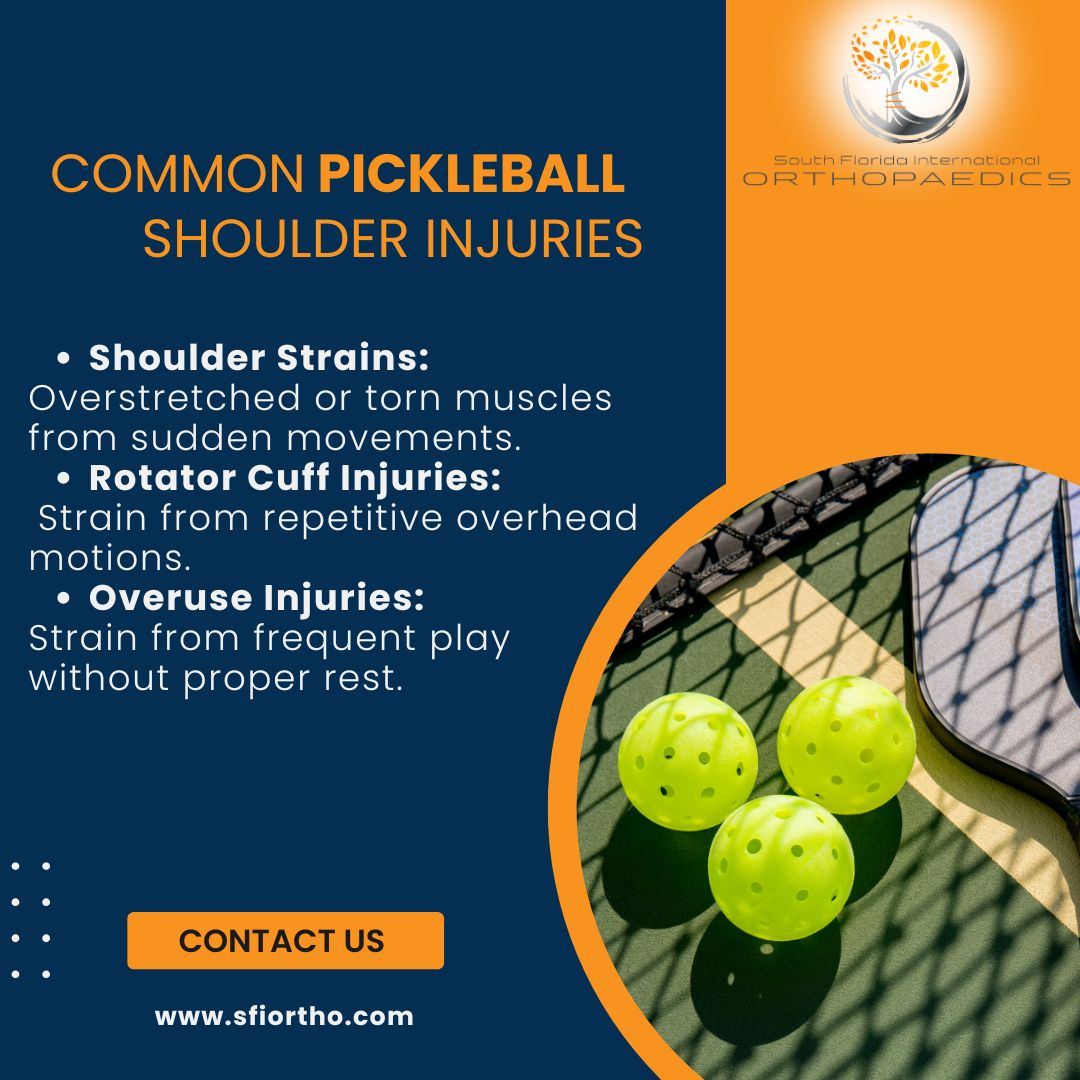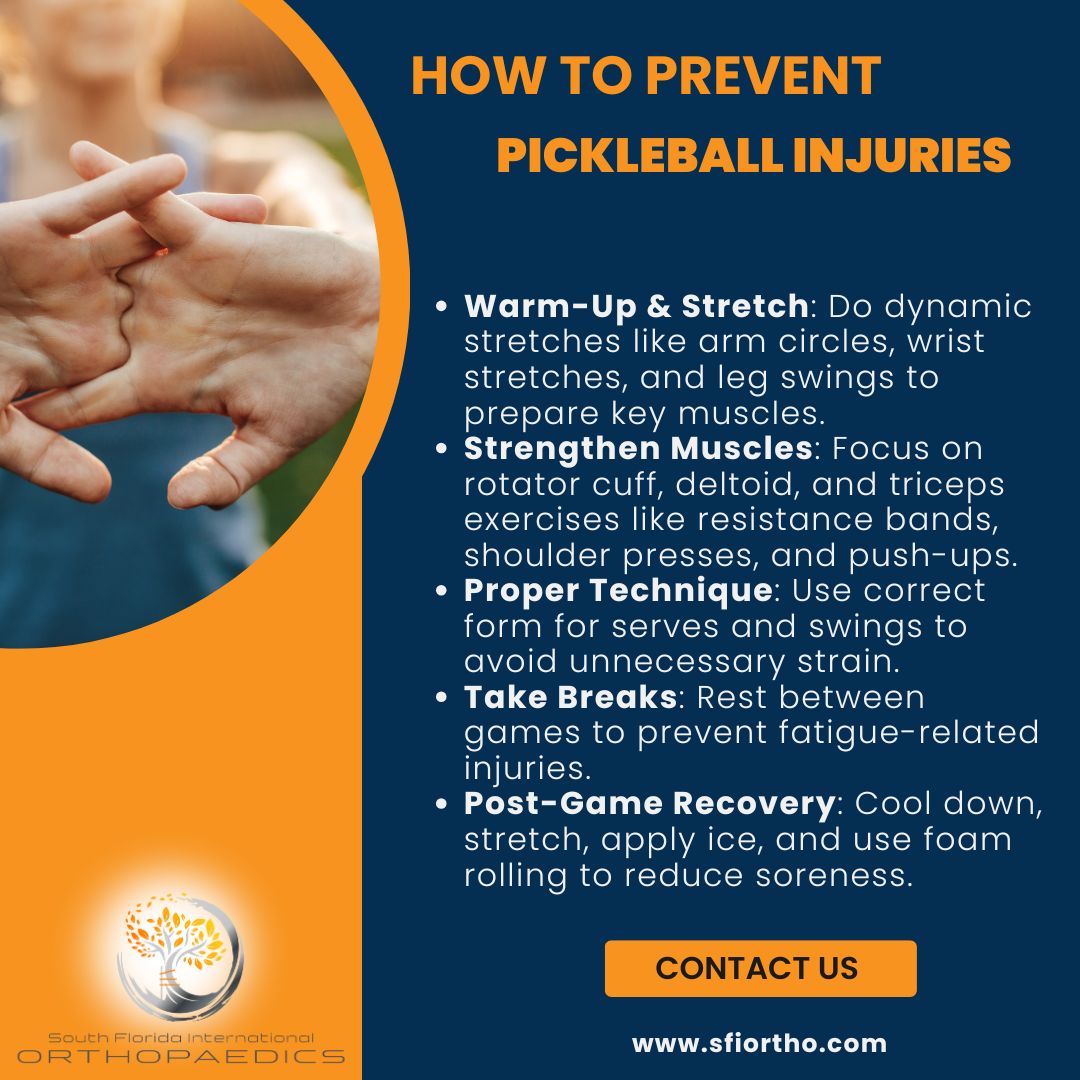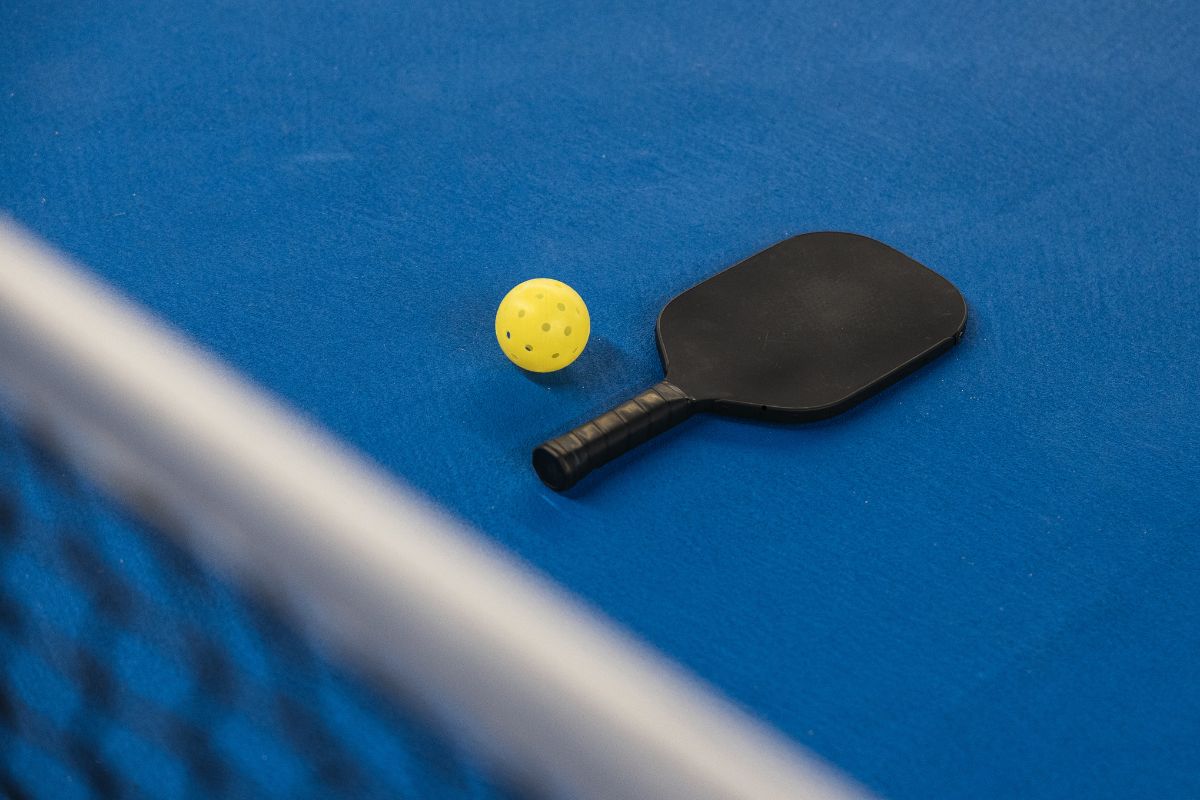Pickleball, a sport that combines elements of tennis, badminton, and table tennis, has taken the world by storm in recent years. With its fast pace and dynamic play, it’s no surprise that the sport is gaining a massive following. However, as with any physical activity, the risk of injury can increase, particularly if you’re new to the game or haven’t played in a while.
In this blog, we’ll explore the common injuries associated with pickleball, particularly focusing on the shoulder. We’ll provide practical tips on how to prevent these injuries so you can continue to enjoy the game without the fear of pain or setbacks. Whether you’re playing for fun or competitively, understanding injury prevention strategies is essential for staying active and enjoying the sport.
Common Pickleball Injuries
While pickleball is a relatively low-impact sport, it involves sudden movements, repetitive motions, and quick direction changes that can put stress on the body. The most common injuries typically affect the shoulder, wrist, and knees. Below are some of the most frequent injuries that pickleball players encounter, specifically those related to the shoulder, which is often vulnerable during play.

Shoulder Strains
A shoulder strain is one of the most common injuries in pickleball players, especially those who are new to the sport or haven’t played in a while. This injury occurs when the muscles or tendons in the shoulder are overstretched or torn, often from a sudden, forceful movement like a serve or smash.
Symptoms of Shoulder Strain:
- Pain or tenderness in the shoulder area
- Limited range of motion
- Swelling or bruising
- Weakness or difficulty lifting the arm
Treatment:
- Rest and ice to reduce inflammation
- Over-the-counter pain relievers
- Physical therapy exercises to strengthen the shoulder
- In more severe cases, professional intervention may be required, such as corticosteroid injections.
Rotator Cuff Injuries
The rotator cuff is a group of muscles and tendons that stabilize the shoulder and allow for a wide range of motion. In pickleball, repetitive overhead motions such as serves, smashes, and backhands can strain these muscles and lead to rotator cuff injuries.
Symptoms of Rotator Cuff Injuries:
- Persistent pain in the shoulder, especially when raising the arm
- Weakness or instability in the shoulder
- Pain when performing activities like throwing, serving, or reaching overhead
Treatment:
- Physical therapy focused on strengthening the rotator cuff muscles
- Rest and ice therapy to reduce inflammation
- Anti-inflammatory medications
- In severe cases, surgical intervention may be necessary.
Overuse Injuries
Pickleball is an activity that can be easy to get hooked on, but overuse can lead to various types of injuries, especially in players who participate frequently without proper rest. These injuries can affect multiple parts of the body, but the shoulder is particularly susceptible due to the repetitive overhead motions.
Symptoms of Overuse Injuries:
- Dull aches or pain that intensifies with activity
- Decreased performance or mobility
- Swelling or stiffness, especially after long periods of play
Treatment:
- Rest and proper hydration
- Regular stretching and strengthening exercises
- Ice application after games or practices
- A balanced routine that allows for recovery time between sessions
How to Prevent Pickleball Injuries

Now that you understand the common injuries associated with pickleball, it’s time to explore how you can avoid them. Prevention is key to ensuring a long and injury-free career on the court.
Warm-Up and Stretching
Before you hit the court, always take the time to warm up properly. A good warm-up prepares your muscles and joints for the physical demands of pickleball.
Focus on dynamic stretches and exercises that target the shoulder, wrists, and knees—these are the most vulnerable areas during play.
Some effective warm-up exercises include:
- Arm circles to loosen the shoulder muscles
- Shoulder rolls to increase mobility
- Gentle wrist stretches to prepare for gripping the paddle
- Leg swings to loosen up the knees and hips
Strengthen Key Muscles
To prevent injuries, you must strengthen the muscles that are most used in pickleball, particularly those in the shoulder and upper body. Focus on exercises that target the rotator cuff, deltoid, and triceps muscles.
Incorporating these exercises into your routine will help provide the stability and power needed for proper technique, reducing the risk of strain and injury.
Some effective strengthening exercises include:
- Resistance band exercises to target the rotator cuff
- Shoulder presses and lateral raises to strengthen the deltoids
- Push-ups to build overall upper body strength
Proper Technique
Using proper technique during your serves, swings, and volleys is critical for minimizing stress on your shoulder. Poor technique, such as overreaching or forcing a swing, can increase the risk of injury.
Consider taking a lesson with a coach to refine your technique, especially if you’re a beginner. Correcting bad habits early on will go a long way in preventing injuries.
Take Breaks
Pickleball is a fast-paced game, but it’s important to take breaks and rest your body. This is especially true for those who are playing frequently or for extended periods of time.
Fatigued muscles are more likely to become injured, so listen to your body and take breaks when needed.
Post-Game Recovery
After your game, take the time to cool down and stretch. This helps reduce muscle soreness and improve flexibility. Applying ice to your shoulder or any other areas that may feel tight or sore can also reduce inflammation.
Additionally, consider using foam rolling or massage to help release muscle tension.
When to See a Shoulder Specialist in Miami
If you’re suffering from any of the common pickleball injuries mentioned above, such as shoulder strains, rotator cuff injuries, or persistent knee and ankle pain, it’s essential to listen to your body. If you’re an active player or frequently experience pain or discomfort that doesn’t improve with rest, it may be time to seek professional advice.
Ignoring these symptoms or trying to push through them can lead to more severe injuries down the road. Consulting a shoulder specialist in Miami can ensure you receive the right treatment before a minor issue turns into a long-term problem.
Why Choose South Florida International Orthopaedics?
When it comes to sports injuries, especially in high-intensity games like pickleball, choosing the right healthcare provider is essential. South Florida International Orthopaedics is known for delivering expert care, offering a full range of treatments for sports-related injuries.
As a leader in South Florida orthopedics, the team uses advanced techniques and personalized treatment plans to help athletes recover, regain strength, and prevent future injuries.
South Florida International Orthopaedics also offers additional services to enhance your recovery process and provide long-term injury prevention. These services include:
Cutting-edge treatments that use the body’s natural healing abilities to repair damaged tissue.
Platelet-rich plasma injections that promote healing by using your body’s own cells to accelerate recovery.
Expert care customized for athletes to recover from and prevent injuries.
With a team of skilled specialists and advanced treatment options, South Florida International Orthopaedics offers a holistic approach to helping you stay active and injury-free.
Ready to Get Back on the Court?



If you’re ready to enjoy pickleball without pain holding you back, it’s time to take action. Whether you’re dealing with shoulder pain, rotator cuff issues, or any other sports injury, South Florida International Orthopaedics is here to help.
Contact us today to schedule an appointment with one of our expert shoulder specialists in Miami and start your journey to injury-free play. Don’t let injuries keep you sidelined—take the first step toward recovery today!
***
The material contained on this site is for informational purposes only and DOES NOT CONSTITUTE THE PROVIDING OF MEDICAL ADVICE, and is not intended to be a substitute for independent professional medical judgment, advice, diagnosis, or treatment. Always seek the advice of your physician or other qualified healthcare providers with any questions or concerns you may have regarding your health
